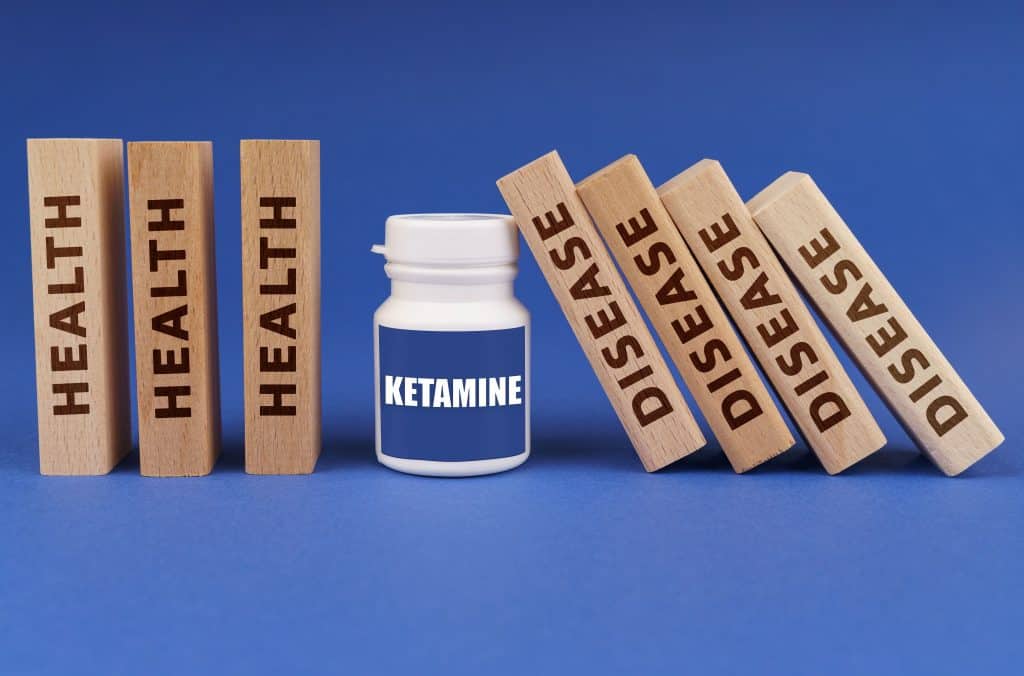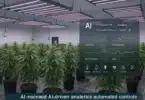The legal weed industry is going down. Or if not actually down, it’s certainly not reaching its projected highs. And there are good reasons. Beyond the ability to grow the plant at home, the black market has always existed, and always been able to offer cheaper prices. People don’t like paying higher prices than they have to. This is now seen in the ketamine industry, where expensive pricing has led to clinics closing; in light of patients taking the cheapest option possible.
The cost of treating your mental health
One of the most messed up things about the idea of mental health treatment, is that it means taking people already suffering from things like depression and anxiety, and forcing often huge price tags as a means to get better. How many people are willing to go to therapy, or take action, if they feel it’ll burn a hole in their wallet, and possibly make their situation worse by affecting their feelings of monetary (and therefore life) security?
The legal weed industry is a greedy place. Legislators were so greedy they instituted ridiculous taxes to try to squeeze as much tax money into their own coffers as possible. And there wasn’t a lot of logical thought or reality that went into it. We can know this because the whole idea was to divert from an already existent and strong black market, which always required lower pricing to be competitive with. While industry people are disappointed at the current state of layoffs and closures, it’s not surprising. People don’t like paying more than they have to, for something that should cost less.
Yet, without paying attention to this, new legalizations often seek to impose the same mess of taxes and regulatory laws, which caused the problems in the first place. And not only that, they’re applying the same lack of logic to even newer industries, like mushrooms. It’s speculated Oregon is going to have some pretty high session costs; and that’s to use a plant that can be grown at home, for which there’s a strong black market, and for which no actual therapy is given in a session. Actual therapy might be a reason for increased pricing, but lets be honest, who wants to pay out hundreds for a random trip sitter?
Thanks for being here. Check out the Cannadelics Weekly Newsletter for direct email updates; and we’ll get you some sweet promos on cannabis flowers, vapes and other smoking devices, edibles, cannabinoids, amanita mushroom extracts, and so much more. Let’s all feel good together!
I’ve been behind the ketamine industry since it started. Mainly because it’s a way for people to get help, and without dealing with standard medical channels. But the same problem permeated this industry from the get-go – super high prices. Ketamine is produced generically. And the sessions (at home or in-person) aren’t like psychedelic sessions which can take hours. Why are people charged so much? Probably because the thought of how popular such an industry could be, made those running it get a little greedy.
What’s going on in the ketamine industry now?
Right now, the ketamine industry is experiencing the same thing as the weed industry, which will likely be the same as what happens with the legal psychedelics industry if the same path of greed isn’t diverted from. Essentially, clinics are closing. And while some, like the writer for this Guardian article, want to put it on an industry ‘moving too quickly’, that reasoning makes no sense. It could have sprouted out even faster, and still done better than today; if people were charged relevant pricing.
I did a couple ketamine treatments in Mexico. My experience wasn’t the best, either because I really am a non-responder (and more specifically, an anxiety responder), or because of the crappy doctor, and the not-great-experience he created. Either way, the ketamine treatments were very expensive even in Mexico (though better than the US), and the idea of trying it further under the circumstances, didn’t make financial sense.
I find it a little funny that despite watching it happen with weed, there’s still confusion on the topic. People don’t have money. The majority of us are fighting to survive, and its often the people from the worst financial situations that have the biggest issues. The expensive nature of the ketamine industry indicates its only meant for the rich among us. If that’s the case, there shouldn’t be any expectation of its survival long term, and not because it doesn’t work.
Just like the weed industry, tons of crazy projections were made for ketamine, with no thought to reality. How can such a high-priced service appeal to those without money? In a great showing of exactly this point, clinics that offer at-home services at lower prices, have a greater influx of users for those low prices. And while that in and of itself should answer the question of how to handle this, and provide incite into why its happening; confusion seems to continue. With lines like above – that the industry moved too quickly, instead of the logic answer that the industry charges too much. Period.
The fallout
Who is being hit? A lot of places, including two of the bigger providers: Field Trip Health and Ketamine Wellness Centers (KWC), both of which operate chains of clinics in the US. According to KWC’s site, “Delic announces the pending acquisition of Ketamine Wellness Centers by Peter/PetraMD, the largest online mens and women’s health clinic covering 47 states nationally.” Which means it was bought out.

While KWC was bought out, and Field Trip closed about four locations, other providers like Actify Neurotherapies, had to close shop entirely. According to the Guardian article, “Premature expansion, delays to health insurance coverage payments and investor impatience have been key to these closures,” but I’m not onboard with that explanation. If pricing had been decent from the beginning, none of this would matter.
And for that matter, let’s look at pricing. When I wrote about this close to two years ago, I quoted pricing as per TMS & Brain Health as $400-800 per session; with usually six ketamine treatments (or more in the case of TMS); that’s a lot of money. At that time, yet another clinic – Revitilist Clinic, put the cost at $474- $800 per session, depending on the exact service. Even if a person from lower financial means manages some treatments, the likelihood they’ll continue is lowered by the extreme cost.
On the other hand, some clinics started offering at-home services which bring down costs. It was reported within the last year, that Mindbloom clinic charged $193 per session as part of an introductory package of six sessions with a total price of $1,158. This is much lower than the thousands it costs to do the same amount of sessions in-person.
Lets go back to those big chains for a second, which are having problems and closing locations. KWC charges $125 just for pre-screening, and then charges $449 per session for mental health issues, and a whopping $899 per session for pain treatments. For 4-6 mental health treatments sessions, that’s $1,921 – $2,819, without considering ongoing treatment. For pain, its $2,822 – $4,620. Think about people who want to get away from opioids through ketamine, and how difficult this makes it at such expensive prices.
Field Trip for its part has different options. If you want in-person, but without all the bells and whistles (now simply having the therapist in the room is considered ‘extra’), it costs $219 per session, and goes up to $302 for everything including the therapist. However, this is misleading, as the sessions are packaged together, meaning that $219, is really $5,250 over 24 months, and the $302 is really $7,250 over 24 months. Bundling generally means not paying for single sessions, and might require continued payment when treatments aren’t effective.
Field Trip also provides at-home treatments. In the FAQ it states these sessions have a base rate of $150; but can only be done for New York residents. Whether this is only done as a package deal, like above, is hard to say, as its not formally stated. My expectation is that it does come as part of a package deal with a higher final price. Even so, the price is much lower, so its not surprising that clients prefer this model. And it says a lot if you pay attention. It says that the treatments never needed to cost more than this anyway, and even this might be an inflated price.

What does this mean?
According to Natalie Ginsberg, the global impact officer at MAPS, via the Guardian, “I live in LA and there are ketamine clinics everywhere. Telehealth is not killing the clinic business but many people will opt for both cheaper and more convenient ways of doing this work.”
Ben Spielberg, the CEO of Bespoke Treatment, a clinic that offers ketamine infusions, had this to say via the Guardian, “A lot of people see ketamine clinics as this great business to go into to make huge margins, because ketamine itself is so cheap. But it really couldn’t be further from the truth: the cruel absurdity is that the people who benefit the most from ketamine therapies can rarely afford it. Many of them are on disability due to their mental health conditions and $400-$600 per infusion is an insurmountable obstacle.”
When looking at Oregon’s magic mushroom industry plans, the same idea of overly expensive pricing is set to be employed, with apparently no thought to the weed or ketamine situations, and what they tell us. According to OPB.org in an article from March 2023, expected costs could be between $2,000 and $3,000 for a treatment course, though this is speculation at the moment. It does, however, go in line with pricing in places like the Netherlands, where treatment can range from $4,160 – $7,750 for the whole cycle. That begs the question of who would do this when you can buy mushrooms for ~$32 an eighth.
How expensive is ketamine outside formal treatments? According to drugs.com, you can get 200ml for $167.80, with 10mg per ml. Most patients receive .1-.5mg/kg for a treatment, so if you weigh 160 lbs, that’s 72.5kg. On the high end, it means a treatment using 36.25mg, which is roughly 3.5 ml. 200ml is therefore good for many, many usages (upwards of 50), meaning the costs of these in-person and at-home treatments are wildly expensive.
Conclusion
The reality is that the future of ketamine therapy is either in at-home treatments; these companies losing the greed, and offering less expensive prices that go in line with the actual cost of ketamine; or continuing as is, with the understanding it’ll be a niche market for the small percentage who can afford it.
Welcome readers. We appreciate you stopping by Cannadelics.com; a news site geared toward independent reporting of the cannabis and hallucinogen industries. Come our way whenever possible to stay in-the-loop; and subscribe to the Cannadelics Weekly Newsletter, so you’re always up on what’s going down.







There really needs to be something done in the state of Virginia the governor is running it in the ground here an killing the cannabis industry by making delta 8 and 9 both illegal an not putting a dispensary in place when it’s legal here in Virginia all it’s gonna drive the black market even faster and more wide open